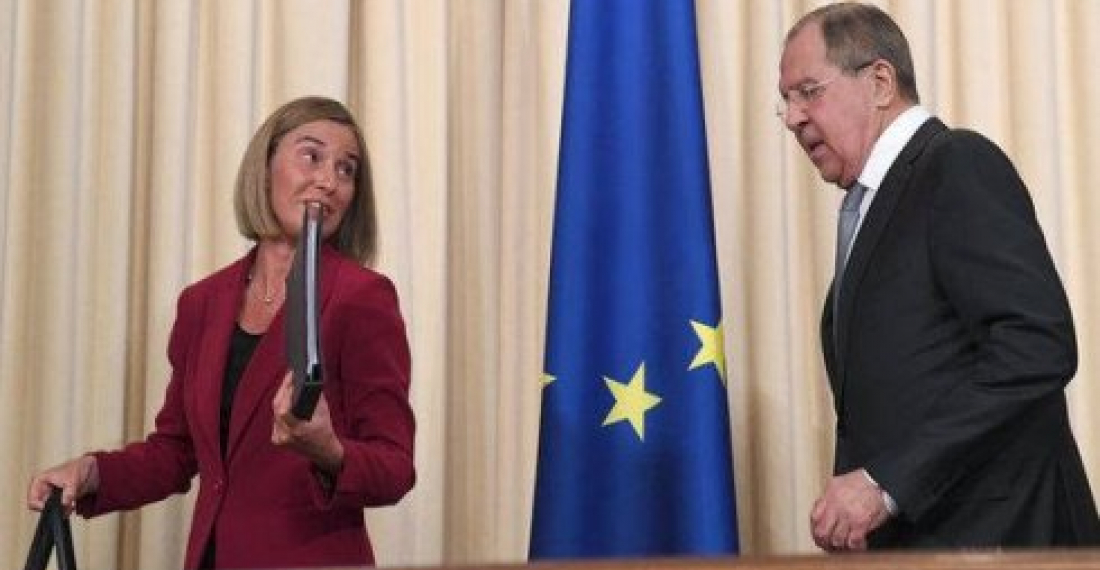The European Union and Russia have an interest in working closely together on a number of issues of mutual concern and should try to narrow their differences on other dossiers through an open and frank dialogue, European Union High Representative Federica Mogherini said on Monday at a joint press conference in Moscow with Russian Foreign Minister Sergei Lavrov
"I shared the Minister's assessment that this exchange was useful, constructive, positive and we will follow this up not only in the course of the day but also in the coming weeks and months," Mogherini said after talks with Russian Foreign Minister Sergey Lavrov. "We always believe in the European Union that dialogue - constructive, open dialogue, frank dialogue - is the way. And this is true also for a relevant - not only neighbour - but a global player as the Russian Federation is."
The High Representative did not hide the fact that there are areas of disagreement between the EU and Russia, not least the conflict in eastern Ukraine and Russia's annexation of Crimea, but underlined that the two sides had exchanged views on how they can move forward on the implementation of the Minsk Agreement.
"We believe in the European Union that it is even more urgent to do so after the death of one of the OSCE monitors yesterday in the east of Ukraine," she said.
Mogherini and Lavrov discussed a number of issues where it is important for major powers to work together, not least Syria, Libya, the peace process between Israel and Palestine, the nuclear deal with Iran, denuclearisation of the Korean Peninsula, the peace process in Afghanistan, and global responsibility-sharing when it comes to managing huge migratory flows or the work to implement the Paris Agreement on climate change and the Sustainable Development Goals.
"We shared views on how to work more closely on the political solution of the war in Syria. I believe we share an interest: that of putting an end to this war, that is costing so many lives, that is causing so much pain, to Syrians first of all, but also in the broader region. And we share the interest to guarantee that that part of our neighbourhood is finally finding peace, stability and security, defeating Da'esh and guaranteeing a democratic, inclusive, secular, united future for Syria within the framework of the relevant UN Security Council Resolutions, through intra-Syrian talks that are UN-facilitated in Geneva and on the basis of UN Security Council Resolution 2254," the High Representative said.
They also agreed to follow up on the counter-terrorism dialogue that has resumed in the last months, and to cooperate further in the Arctic and the Northern Dimension, and on exchanges in the cultural, educational or research fields.
"Again, this does not delete or overcome all the difficulties and all the disagreements we have, especially in some areas and especially on the issue of Ukraine, but there are also fields of cooperation, and we are determined to increase the level of coordination and cooperation, exploring possible ways in which Russia and the European Union can be useful to solve some of the crises we are facing in the world of today. We live in difficult times; times when not even one single inch, not one single centimetre of cooperation can be wasted or under-estimated. So, we have the responsibility to do the utmost to find common ground and common solutions," Mogherini concluded.
source: commonspace.eu with the press service of the European External Action Service






